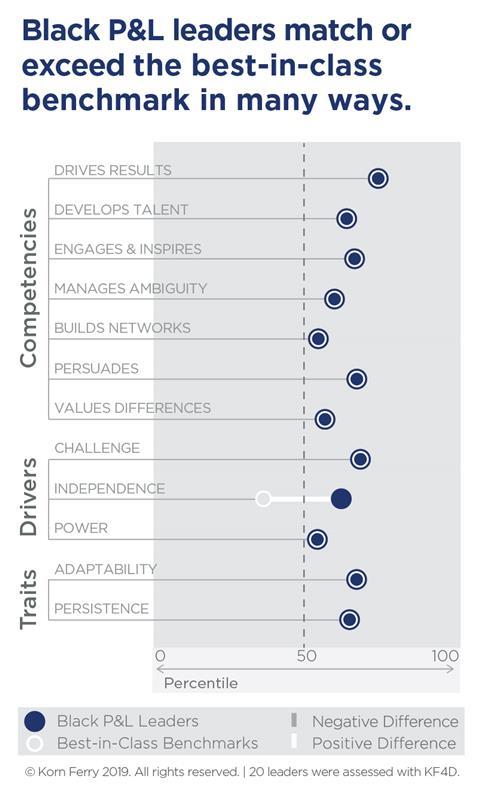Kate Wilson from Korn Ferry explores the experiences that are siphoning many black leaders from the leadership pipeline and the steps that leaders must take to advance black talent from entry level to the top
Recent tragic events have bought to the fore the systemic racism that black people still face. These issues are reflected in some of the challenges we see for black leaders in the workforce.
Sponsored by
Black professionals often get stuck in middle management roles, not accessing the line or delivery roles that prepare them for the most senior jobs. This is no different within the NHS. Over-representation of black, Asian and minority ethnic employees at lower levels is not reflected in senior pay bands and, the BAME population persistently report fewer opportunities for career progression.
What is going on and what can organisations do about it? Our research with senior black operational leaders (P+L leaders) at Fortune 500 companies provides some answers.
The black leaders in the research scored highest against the criteria most important for high-performing senior executives against the Korn Ferry benchmark (see graph 1).

These leaders bring in bucketloads the capabilities organisations need. However, nearly 60 per cent of them reported having to work twice as hard—and accomplish twice as much— to be seen on the same level as their colleagues.
The high levels of persistence, focus and adaptability these leaders show are critical because they faced a range of headwinds on the road to success:
- Micro-aggressions: subtle or unintentional behaviour that shows prejudice or bias;
- Judged on performance not potential: required to prove their value repeatedly through overperforming, despite demonstrated success;
- Social exclusion: being excluded from social circles in and outside of the workplace;
- Expected to deliver more than most: exceptional performance treated as the norm in a way not expected of their peers;
- Unjust assumptions: being overlooked due to negative preconceptions based on racial identity;
- Glass cliff projects: high risk tasks disproportionately assigned to ethnically diverse talent.
These headwinds waste time and energy for black leaders and cause many to falter in their progression to the top. Let’s consider for a moment the impact of glass cliff projects. In order to “prove their value” to the organization, our black leaders were given high-risk assignments where few could have succeeded, with the unspoken assumption that it was in order to prove their worth.
Thirty six per cent of the executives said they were assigned extremely tough projects that no one else wanted to handle and that had a high risk of failure
Whilst these leaders made a success of their experiences these types of assignments will be siphoning many black leaders from the leadership pipeline. The experience can be so painful that leaders lose heart or leave the organisation. As a result, organisations are likely losing valuable managers and future executives and black leaders are not fulfilling their potential.
Shifting the dial
What can organisations do to ensure they are not losing this valuable source of talent? The answer goes way beyond sending black leaders on development programmes. Organisations need to create a culture of “shared responsibility”. Leaders and their employees must work in tandem to advance black talent from entry level to the top. Leaders need to be held accountable for this whilst organisations must design and develop end to end talent management systems with a specific diversity lens.
In the short term, what are some of the things that can help? Two areas stand out from our research. First, be more intentional about ensuring black talent receive access to the opportunities and challenging assignments that help people develop for the most senior roles. Making someone responsible for this directly can help.
Second, mentors who can act as sponsors and change agents can also have a big impact – nearly 86 per cent of our black operational leaders said having a sponsor was indispensable. Develop sponsors, and managers more broadly, to ensure they understand the experiences of black colleagues and the workings of bias.
Ultimately however, it goes much broader than this if we’re going to shift the dial. We need to develop inclusive leaders who focus beyond the talent management systems to create a genuinely inclusive culture.
For more information about Korn Ferry’s research, click here.
Downloads
KF The Black P&L Leader Report
PDF, Size 7.42 mb


































